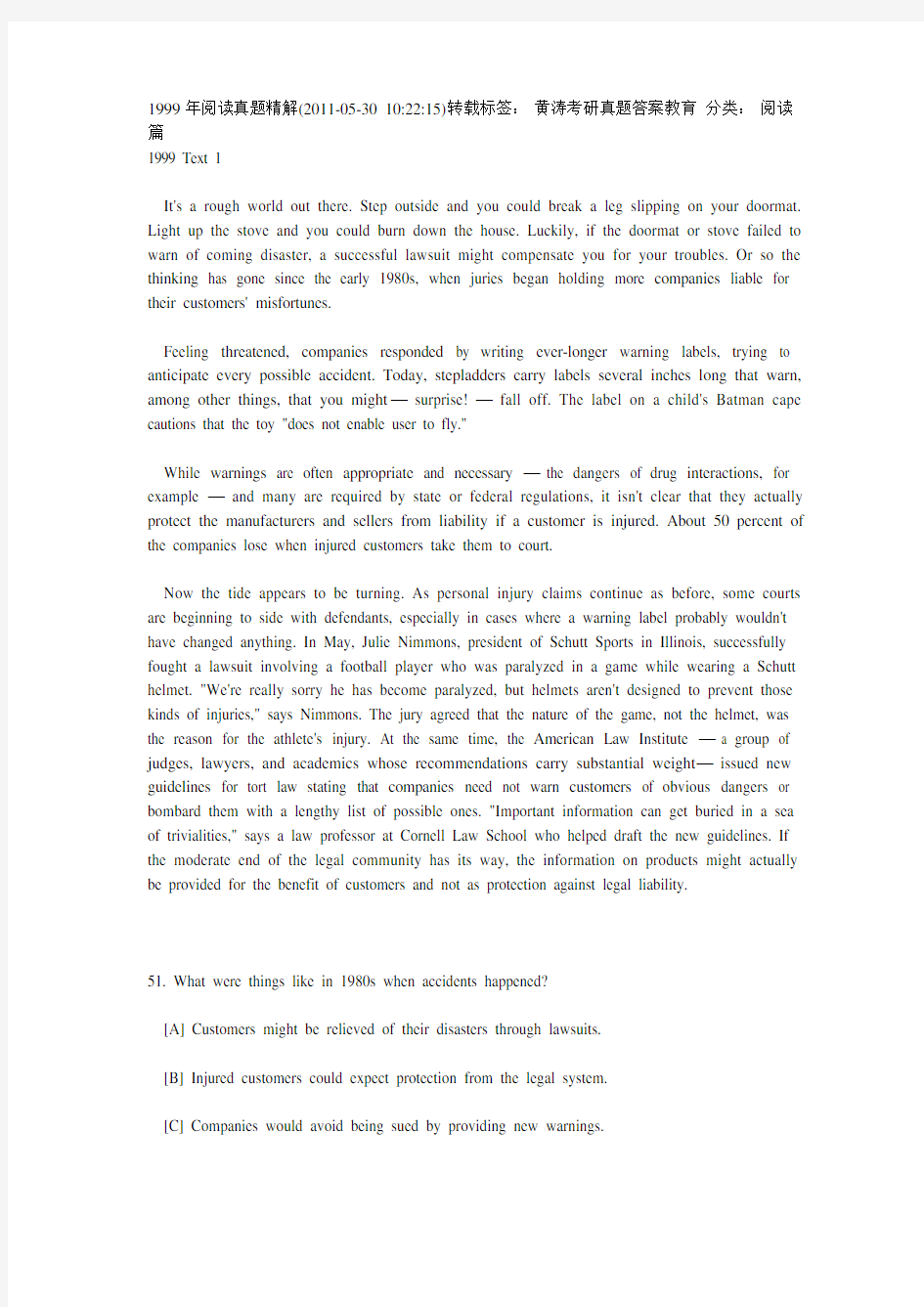
1999年考研英语真题阅读详解
- 格式:doc
- 大小:197.50 KB
- 文档页数:37


1999年阅读真题精解(2011-05-30 10:22:15)转载标签:黄涛考研真题答案教育分类:阅读篇
1999 Text 1
It's a rough world out there. Step outside and you could break a leg slipping on your doormat. Light up the stove and you could burn down the house. Luckily, if the doormat or stove failed to warn of coming disaster, a successful lawsuit might compensate you for your troubles. Or so the thinking has gone since the early 1980s, when juries began holding more companies liable for their customers' misfortunes.
Feeling threatened, companies responded by writing ever-longer warning labels, trying to anticipate every possible accident. Today, stepladders carry labels several inches long that warn, among other things, that you might — surprise! — fall off. The label on a child's Batman cape cautions that the toy "does not enable user to fly."
While warnings are often appropriate and necessary —the dangers of drug interactions, for example — and many are required by state or federal regulations, it isn't clear that they actually protect the manufacturers and sellers from liability if a customer is injured. About 50 percent of the companies lose when injured customers take them to court.
Now the tide appears to be turning. As personal injury claims continue as before, some courts are beginning to side with defendants, especially in cases where a warning label probably wouldn't have changed anything. In May, Julie Nimmons, president of Schutt Sports in Illinois, successfully fought a lawsuit involving a football player who was paralyzed in a game while wearing a Schutt helmet. "We're really sorry he has become paralyzed, but helmets aren't designed to prevent those kinds of injuries," says Nimmons. The jury agreed that the nature of the game, not the helmet, was the reason for the athlete's injury. At the same time, the American Law Institute —a group of judges, lawyers, and academics whose recommendations carry substantial weight — issued new guidelines for tort law stating that companies need not warn customers of obvious dangers or bombard them with a lengthy list of possible ones. "Important information can get buried in a sea of trivialities," says a law professor at Cornell Law School who helped draft the new guidelines. If the moderate end of the legal community has its way, the information on products might actually be provided for the benefit of customers and not as protection against legal liability.
51. What were things like in 1980s when accidents happened?
[A] Customers might be relieved of their disasters through lawsuits.
[B] Injured customers could expect protection from the legal system.
[C] Companies would avoid being sued by providing new warnings.